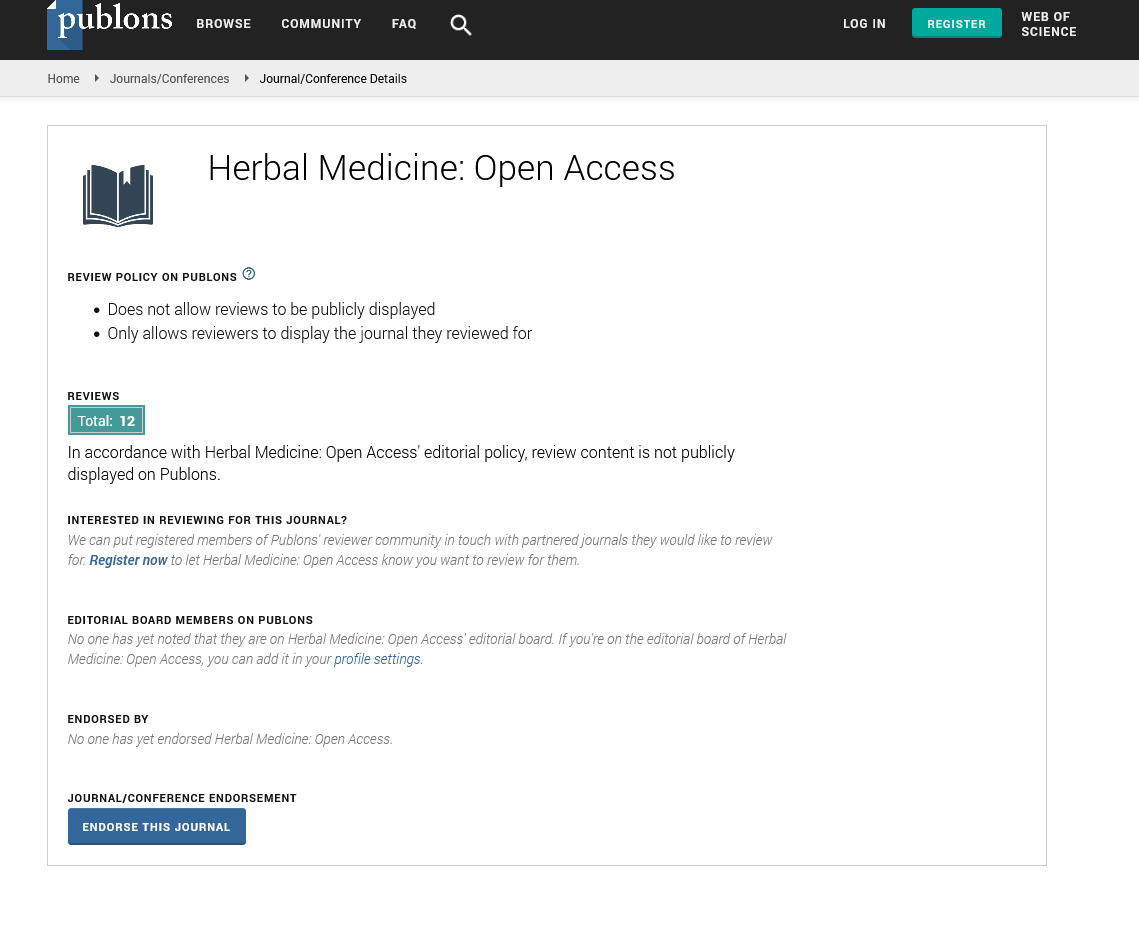ISSN : 2472-0151
Herbal Medicine: Open Access
Utilizing Fine Motor Control Measurements for Outcome-Based Acupuncture Practice: An evidence-based research study
9th International Conference on Acupuncture & Chinese Medicine
August 20-21, 2018 Dublin, Ireland
Donald J. Lefeber
American College of Acupuncture and Oriental Medicine, USA
ScientificTracks Abstracts: Herb Med
DOI: 10.21767/2472-0151-C1-002
Abstract
Objectives: This research is intended to determine if a measurable, repeatable and reproducible method could be developed to demonstrate that acupuncture does or does not affect the fine motor control of the patient. If a physical change in the fine motor control (FMC) is caused by acupuncture, we expect to be able to measure it. We intend to demonstrate that changes in the fine motor control of the hands may provide a clear indication whether or not a specific rehab treatment has in fact provided an appropriate improvement in physiological abilities such as reaction times, coordination, or timing jitter between the hands’ digits. Methods: There are two subject groups composed of 50 subjects each: 1) subjects receiving acupuncture (both pain and non-pain related conditions), 2) subjects who will not receive acupuncture or therapeutic intervention. Subjects were tested with FDA approved medical instrument to determine fine motor capabilities before and after a pre-set duration of time or acupuncture. Acupuncture treatment was performed by a licensed acupuncturist. Data was analyzed by a non-acupuncturist technician and summary reports were generated. Results: Of the 50 acupuncture group subjects studied, 74% had an immediate positive effect on their FMC capabilities averaging ~+5%. Of the 23 subjects receiving continued acupuncture therapy, 94% had a long term positive improvement on their FMC capabilities. The 50 subjects in the control group not receiving any acupuncture treatments had a positive improvement averaging +0.6% in 23% of the subjects. Conclusion: Monitoring FMC measurements allows outcomebased decisions to be made which can modify rehab programs and optimize treatment regimen. Continued studies and research to understand the bio-mechanisms of acupuncture may help in designing improved acupuncture standards and protocols to obtain more optimal and integrative treatment outcomes in clinical and research work.
Google Scholar citation report
Citations : 271
Herbal Medicine: Open Access received 271 citations as per Google Scholar report
Herbal Medicine: Open Access peer review process verified at publons
Abstracted/Indexed in
- Google Scholar
- JournalTOCs
- China National Knowledge Infrastructure (CNKI)
- Directory of Research Journal Indexing (DRJI)
- WorldCat
- Publons
- Secret Search Engine Labs
- Zenodo
Open Access Journals
- Aquaculture & Veterinary Science
- Chemistry & Chemical Sciences
- Clinical Sciences
- Engineering
- General Science
- Genetics & Molecular Biology
- Health Care & Nursing
- Immunology & Microbiology
- Materials Science
- Mathematics & Physics
- Medical Sciences
- Neurology & Psychiatry
- Oncology & Cancer Science
- Pharmaceutical Sciences
